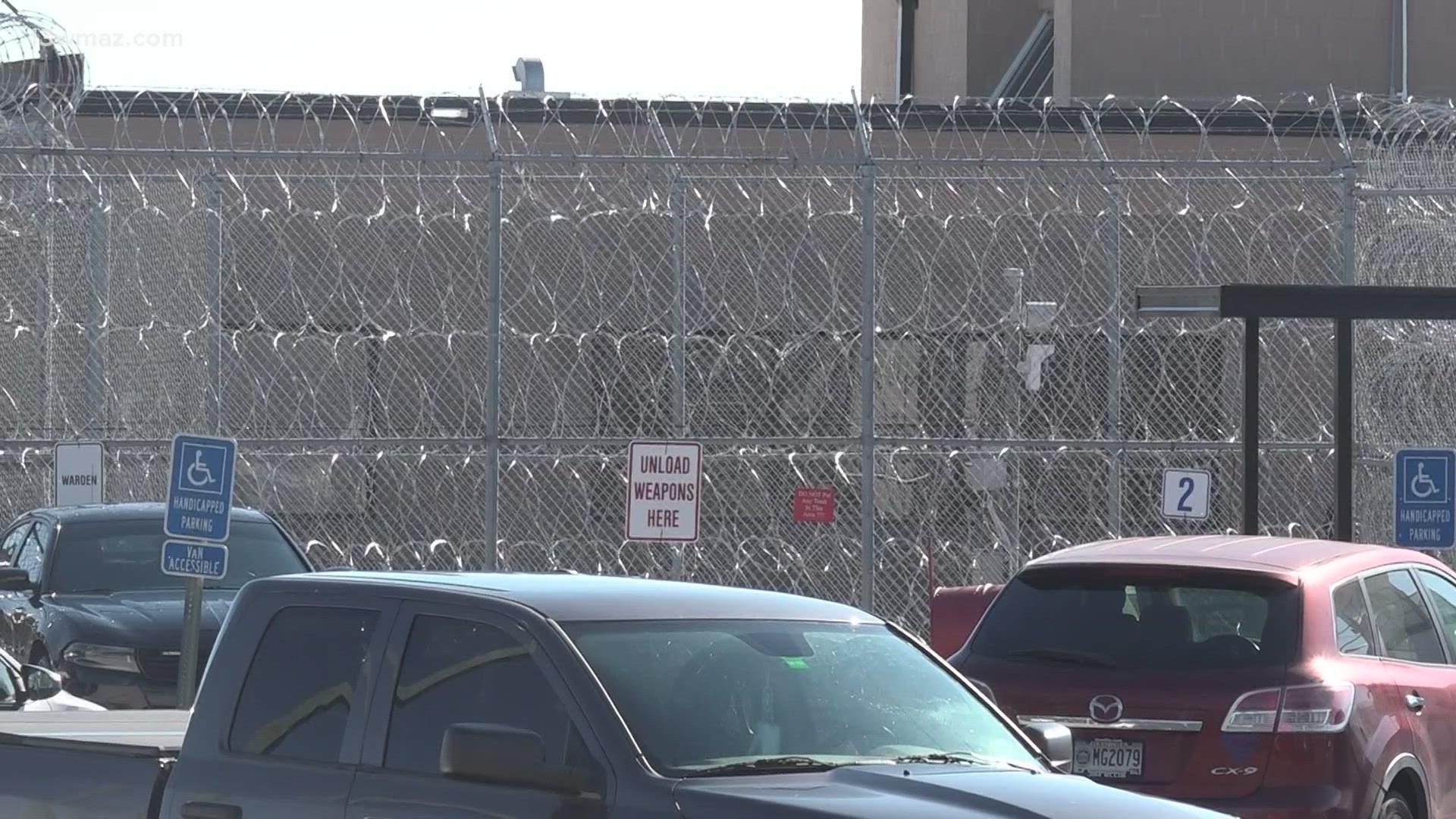MACON, Ga. — A string of recent deaths at Georgia state prisons has people talking about safety, staffing and how violence affects families with people on the other side of the prison walls.
For Emily Castro, the fear is real.
Her husband is in Calhoun State Prison. When someone dies in prison, she says some families aren't notified immediately.
According to the Georgia Department of Corrections, they're holding more than 34,000 people in prisons across the state.
Castro says she worries about her husband. She says he wears his shoes at night because he has to be ready if a fight breaks out.
"When I hear the daily violence that occurs, I mean even when I'm on the phone with my husband, and I'm hearing yelling and screaming in the background, I'm like 'What's going on?' He's like, 'It's just another day in paradise,'" Castro said.
Castro works in criminal defense as a paralegal and says her husband has been in the state prison system for four years.
She says when someone dies in prison, some families aren't notified immediately. She says it's hard to know what is going on in the prison because of the lack of transparency.
"I don't rely on my significant other, because he does not have any mode of communication with me outside of the securest phones," Castro said. "Because of my job, I can't run the risk of getting caught up in anything. But other inmates that he trusts will reach out to me — and not just from his facility, from all 34 facilities."
In Central Georgia, four inmates have died in state prisons within the past nine days. On Sunday and Monday, two inmates — Marquis Johnson and Hollis Bryant — were both stabbed to death inside Central State Prison in Macon.
At Macon State Prison in Montezuma, Tauren Hardy was killed in a fight with his cellmate on Dec. 9. At Dooly State Prison, an inmate died this week from natural causes, GDOC said.
But the recent stabbings have prompted renewed concerns about inmates' safety while incarcerated in Georgia prisons.
Atteyah Hollie is the director of the Southern Center for Human Rights. They do research into the treatment of inmates in Georgia and Alabama prisons.
She says her office gets emails, letters and videos of the treatment inmates receive at the prisons. She calls it a death sentence for many inmates who, under the law, are supposed to one day re-enter society.
"People are unsafe. The level of weapons [inside state prison] is unconscionable, the quality of medical care is unconscionable," Hollie said.
Most of the inmates who were killed in Central Georgia prisons had release dates. While Bryant was sentenced to life in prison, Hardy would have been released by 2029, and Johnson would have been a free man by 2037, according to the GDOC.
While behind bars, Castro says when she visits her husband, the staff doesn't treat inmate's families as human beings. The female visitors can't wear underwire bras because it's considered contraband.
"They intimidate even the loved one to keep their mouth shut. They won't let us go to the bathroom sometimes during visitation because they can. And I think that's disgusting," Castro said.
According to the Georgia Department of Corrections, from July 2022 to July 2023, there were over 1,000 inmate-on-inmate assaults and more than 200 deaths last year in state prisons. Of those 200 deaths, 38 of them were homicides.
"That just can't be the normal state of being when it comes to our taxpayer-funded facilities," Hollie said.
RELATED: 'Don't break up a fight, stay out of it': Organization helps families with inmates in prison
Castro and Hollie agree the state needs to be held accountable for the treatment of inmates because while they were found guilty of a crime, they should be treated like human beings.
Over the past few years, the U.S. Department of Justice has stepped in, starting a probe of conditions at Georgia's state prisons in 2021.
A press release from the DOJ says the investigation will "examine whether Georgia provides prisoners reasonable protection from physical harm at the hands of other prisoners."
The DOJ's Civil Rights investigation has run into road bumps, with the DOJ taking the Georgia Department of Corrections to court in 2022 claiming they failed to provide basic details and documents about how many inmates were killed in Georgia's jails.

